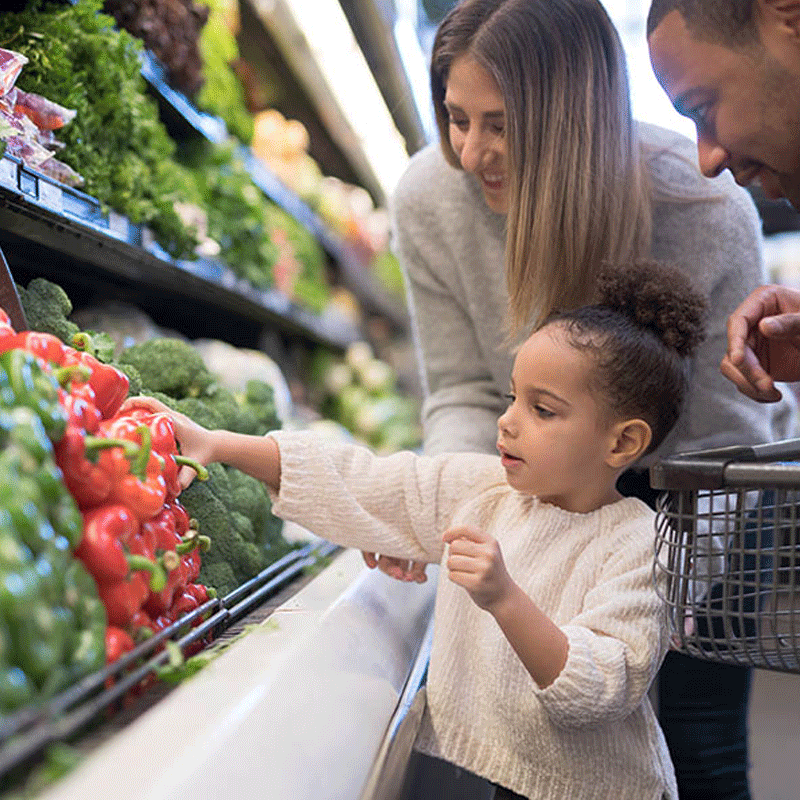Consumer food waste: solutions
When shopping:
Shop wisely.
Consumers can greatly reduce food waste by using shopping lists, planning meals, and avoiding impulse purchases. Customers should also be wary of the food waste and costs associated with purchasing in bulk, as consumers often pay closer attention to the immediate deal rather than food lost and money squandered.
Understand date labels.
Date labels are not federally regulated. They are put in place to ensure peak freshness and quality. Purchasing past the sell-by, use-by and best-by labels does not pose a threat to safe consumption.
Buy imperfect produce.
Sixteen percent, or ~10 million tons, of produce is wasted in farms due to strict specifications such as the need for produce to be a certain size, shape, color, etc. Produce that bypass such specifications and make it to retail are often then overlooked by the consumers. Embrace imperfect produce to keep it from being tossed.
Keep it local.
Connecting with the creation of the food increases your chances of valuing it more. Attend local farmers markets, stands and co-ops to engage with the farmers and see first-hand the care that goes into making your produce.
Support stores and restaurants that avoid waste.
Give attention to the food hubs that take food waste into account and work towards remediating the problem. The more consumers become vocal about such issues, the more likely it will be for more restaurants and stores to respond and change their ways.


At home:
Buy and serve smaller portions, save leftovers.
At restaurants, consumers have the option to ask for smaller or half portions to reduce food left on the plate. If there is food leftover, consumers are encouraged to bring it home to eat later. At home, consumers should freeze or refrigerate any leftover meals in order to reduce food disposal.
Use your freezer.
All types of food can be frozen and last much longer in the freezer. Purchasing frozen produce prevents spoiling and helps ensure that you’ll always have produce on hand.
Declutter.
Reorganize your cupboards, fridge and freezer in order to make all food visible and available. Food you cannot see will most likely spoil and get thrown away.
Share food.
Sharing big portions or bulk purchases with friends and family reduces the potential for food spoilage and disposal. Share extra food with neighbors, utilize apps like Olio that connects neighbors with each other and local food shops so food surplus can be shared.
Send food scraps to backyard chickens and compost.
Reuse your food scraps as compost or animal feed.
Potential impact of composting: 97 thousand tons of waste diverted, $149 economic value per ton, 53 thousand tons of GHGs reduced
Fight wasted food everywhere.
Get involved in community engagements and food recovery organization. Encourage retailers and restaurants to reduce portion size and teach the younger generation the importance of food management.